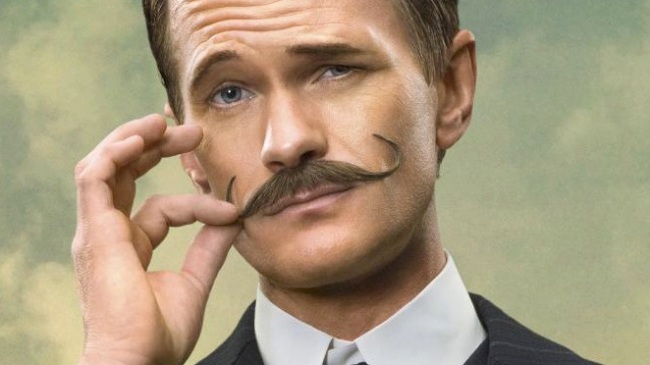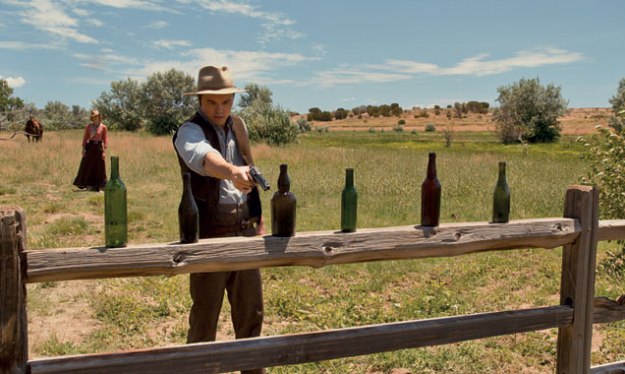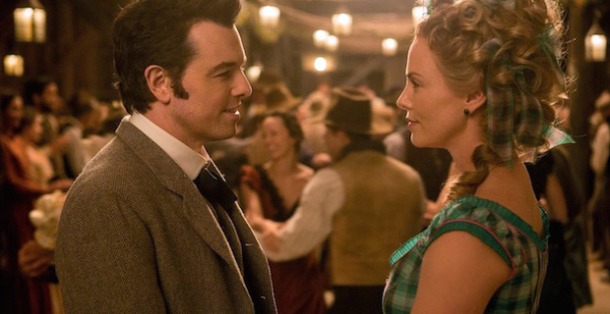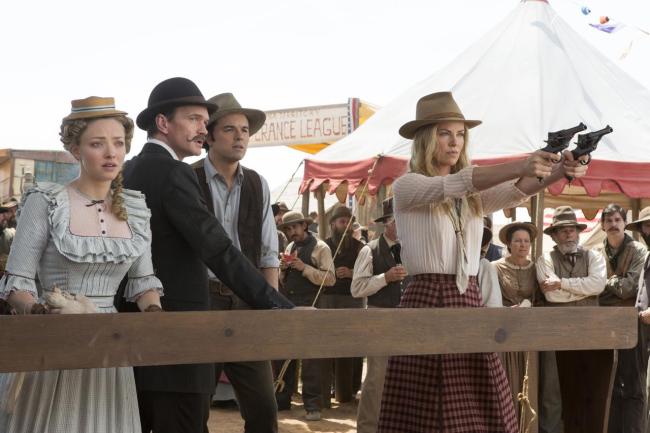A soul legend, a bear legend and, er, a Kevin Spacey (who is, ya know, a legend) cameo appear in this instalment of Richards (legend, if I do say so myself) Reckons in a whole host of reviews. Sorry, I’ve said legend too many times and now it doesn’t seem like a word anymore…
Anyway, right, Get On Up.

So, like many musical biopics, Get On Up is about a musical hero, and the hero in this case is the godfather (no, not that one) of soul James Brown, played by future Marvel superhero Chadwick Boseman. It follows the man from his humble roots living in the woods to international superstardom, focussing on his ascent in musical history and his relationships with longtime contributor Bobby Byrd (Nelsan Ellis), his agent Ben Bart (Dan Ackroyd) and his various bandmates and partners over the years.

The film isn’t exactly told in chronological order; in fact, it jumps around all over his timeline like a grasshopper on a pogo stick. Now, much like a grasshopper on a pogo stick, this works some of the time and sometimes it does not; indeed, the first time we see him is in the late 80s holding a shot gun at a small conference, demanding to know who used his loo. It’s not an obvious place to start, but it’s an intriguing one, leaving you wanting to know quite how he got to that level. The device of a flashback flashforward structure is a mixed bag but it makes the film feel as dynamic as the man himself.

It ticks all the boxes of a good musical biopic; including parts of the story being related to real world events, such as Vietnam and the assassination of Dr Martin Luther King being thrown into the mix. But what elevates this above a solid but standard fair is the not so much performance but inhabitation of James Brown by Chadwick Boseman. Everything, from his dancing to his movement to his voice and mannerisms is absolutely spot on. It’s an astounding role played astoundingly; the role of a slightly unhinged hero is one that actors would cherish to play, and Boseman does it so so well it’s hard to imagine anybody else doing it.

Speaking of unhinged, if I had a criticism of the movie I would say that it does somewhat paper over some of the cracks of the negative parts of his characters. He treats some of the women in his life appallingly, including domestic abuse; the film shows this happen but then doesn’t focus on how she feels about it, or even his guilt about it. It also shows his terrible treatment of some of his bandmates, but never really focusses on the repercussions of this; it just kind of shows it happening and then moves on. That said, the film could easily have omitted all these elements altogether and made Brown a completely clean hero, which would feel both wrong and inauthentic.

The musical numbers in this film too are also fantastic, using original James Brown recordings to great effect in conjunction with some wonderful choreography. But as I say the blistering performance from Chadwick Boseman really does steal the show here and separates, as well as elevates, Get On Up to another level. If you’re a fan of not just soul but music at all, get on up off your computer and see it when you can!
The next station is Paddington. Change here for joy, warmth and heart.

Based on the classic Michael Bond creation, Paddington is a modern retelling of the classic tale, which goes a little something like this; a young bear (Ben Wishaw) lives in Darkest Peru with his Auntie Lucy and Uncle Pastuzo (Imelda Staunton & Michael Gambon). One day, there’s a terrible earthquake, and his Auntie Lucy suggests that he go and find a new home in London, because they “know how to welcome new people there”. So off he goes to London, but doesn’t quite find the warm reception he was anticipating. At Paddington station, with a label around his neck saying “please look after this bear”, the Brown family (including Hugh Bonneville and Sally Hawkins) find him and decide to take him in. From there, fuzzy chaos ensues.

There’s been a lot of pseudo-controversy surrounding Paddington recently. FIrst about Colin Firth’s “conscious uncoupling” (a term coined I believe by Chris Martin’s failed marriage) from the project; Colin Firth was originally meant to be voicing the little bear himself, but decided along with the creative team that it was best to part with the project. Secondly, the BBFC rated the film as “PG” rather than “U”, which caused a massive stir (not helped by newspapers, certainly) due to “sexual references”; it has since been changed to “inneundo”, which is a small downgrade, but it wasn’t as if before this Paddington was wearing a bra and eyeing up Mr Brown like a toyboy. So in the face of this swirling controversy, people were worried about quite how this national icon was going to be portrayed on screen.

It gives me great pleasure to say that Paddington is an utter delight; like a big, warm hug of a movie, almost like getting a cuddle from the bear himself.

The reason it works so well is down to a sweet, marmalade-like mix of features. Firstly, the bear himself. I mentioned earlier about the conscious uncoupling by Colin Firth from the movie, and in a way actually I’m glad because I now cannot imagine him having any other voice apart from Ben Wishaw’s. It’s got everything that Paddington needs; warmth, sweetness, versatility – it has everything in spades. Colin Firth’s voice would feel too aloof and not playful enough. The animation of the bear himself is phenomenal, giving him so much presence and emotion in the movie and none of that dead eyes that other animated characters have suffered from in recent years. Director Paul King of Mighty Boosh fame does a fantastic job of placing Paddington firmly as the focus of every scene, and making him not seem out of place at the same time.

The writing too is genuinely funny for people of all ages, with archetypes, references and puns galore for the adults and gloriously (not annoyingly) silly jokes for both regular sized kids and big kids. The plot too is easy to follow for kids; there is a protagonist, yes, in the form of Nicole Kidman as an ardent taxidermist, but she isn’t any more terrifying than perhaps Cruella de Vil is to kids. There are scenes that are sad and scenes where Paddington is in danger, but these scenes are absolutely necessary for a family film so that there are bits where the kids can root for Paddington instead of watching him stumble through life (as entertaining as that is!).

It’s a warm hug of a movie, with an underlying political message of acceptance and the “welcoming British” which, in a time of UKIP and rows about immigration, is a wonderful thing to see. It’s a love letter to the character, and to British charm and wit. Please, PLEASE take your children to see Paddington over Nativity 3: Dude Where’s My Donkey? this Christmas; it deserves it so much more, and is a better experience for everybody on pretty much every front. And temptation of suicide would be far, far lower with Paddington…
And finally, time for Horrible Bosses 2.

These Horrible Bosses have a plot, and that plot is this; Nick, Kurt and Dale (Jason Bateman, Jason Sudeikis and Charlie Day) are back, and have had an idea for an invention since we last saw them trying to murder their bosses. The invention is the “shower buddy”. They go on the telly with their idea and get noticed by Burt and Rex Hanson (Christoph Waltz and Chris Pine), Burt being the owner of a big billionaire company who want to distribute the “shower buddy” – however it turns out that Burt gleefully backs out of the deal and rips off their idea, leaving them $500,000 in debt. Obviously miffed by this, they cook up a scheme to kidnap Rex and hold him to ransom, demanding their money back. But, as with last time, things don’t go to plan.

As with all sequels, your level of acceptance of Horrible Bosses 2 will teeter down to whether or not you liked the first one. And in this case your level of tolerance with Charlie Day’s voice (mine is higher than perhaps some folks’ is). It is by all means not going to convert anybody new to the franchise, and it has just the same level of filthy gags, comic ineptitude and some admittedly quite funny cameos from major stars such as Kevin Spacey, Jamie Foxx and Jennifer Anniston. It’s so similar in fact that it bears the question quite why this one was made; dollar signs are the answer here, of course, nothing more.

That said, I have seen worse comedy sequels in my time. Quite how absolutely hapless and stupid Dale and Kurt are while coming up with these schemes is certainly entertaining to watch, and some of the phonetic jokes are better than the pointlessly filthy ones. I for one can find a rude joke quite funny and have a high tolerance of them, but the same thing again and again and again can get a bit tiresome. Still though, there are enjoyable things to be found in Horrible Bosses 2, such as the admittedly quite slick editing (they love a good montage) and entertaining sequences, even if it is farfetched and ridiculous. The cameos from old horrible bosses Kevin Spacey and Jennifer Anniston do feel like they’ve been blu-tac’d on to the plot somewhat for the sake of having them back, but they’re JUST ABOUT enjoyable enough to warrant them being there. There’s also a nice role in there too for Jonathan Banks (aka Mike in Breaking Bad), essentially playing the same cop role as ever, but he plays it so well that hey, I ain’t complaining.

So with Horrible Bosses 2 there are a few laughs in there for returning fans of the first film, and some enjoyable sequences and cameos, but the feeling of “… what was the point of this again?” can’t quite escape from your mind during the running time. However, there are certainly worse comedies out there.
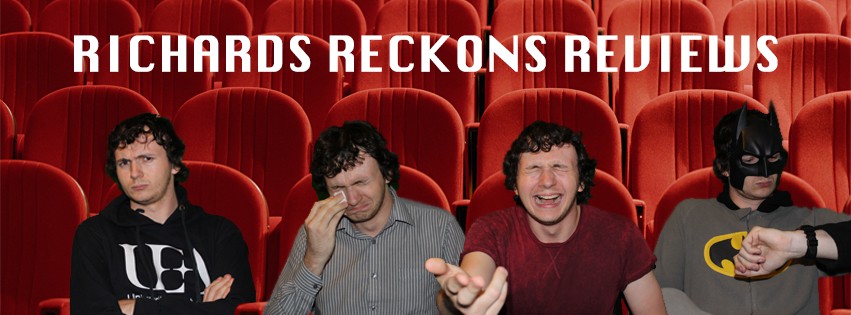





















































.jpg)






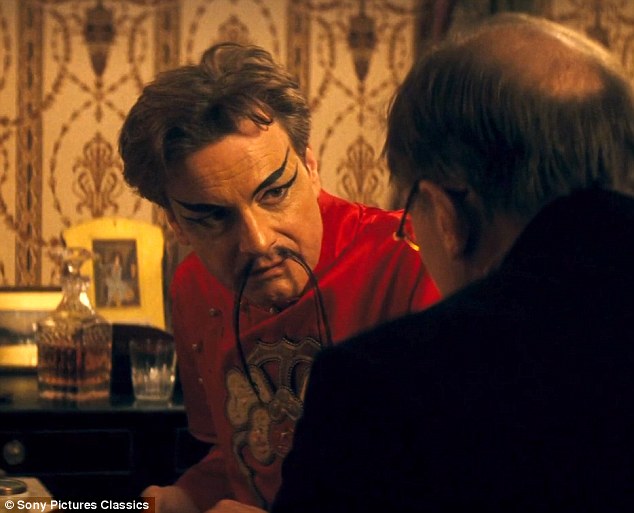 ANYWAY, Magic in the Moonlight not only has magic in the moonlight but it also has a PLOT in the moonlight, and that plot is this; set in the 1920s, Stanley (Colin Firth) is a successful magician who performs under the moniker Wei Ling Soo around the world. In Berlin, he’s approached by an old friend of his called Howard (Simon McBurney), who asks him to join him on a trip to the French Riviera to meet a rich family who have been charmed by the mystical Sophie (Emma Stone), who he thinks may truly possess the ability to talk to the dead and clairvoyance. Stanley being a famous skeptic, he agrees to go with him to meet her, and finds himself lost for words by her abilities.
ANYWAY, Magic in the Moonlight not only has magic in the moonlight but it also has a PLOT in the moonlight, and that plot is this; set in the 1920s, Stanley (Colin Firth) is a successful magician who performs under the moniker Wei Ling Soo around the world. In Berlin, he’s approached by an old friend of his called Howard (Simon McBurney), who asks him to join him on a trip to the French Riviera to meet a rich family who have been charmed by the mystical Sophie (Emma Stone), who he thinks may truly possess the ability to talk to the dead and clairvoyance. Stanley being a famous skeptic, he agrees to go with him to meet her, and finds himself lost for words by her abilities.



 There are also a couple more details that grated on me the whole way through; firstly, the soundtrack. The soundtrack starts off as fitting in with the old-timey aesthetic and feels very in place as a nice touch, but then it gets extremely repetitive and grates and grates and grates and grates; feeling especially jarring when quite a serious event occurs and an upbeat 1920s jazz band starts playing to accompany it. Secondly, Stanley himself. I’m a fan of Colin Firth as an actor and I think he’s great, and it’s no fault of his that Stanley is massively unlikeable. He’s arrogant, aloof and so up himself he could be using himself as his own puppet. The fact the character switches in his opinions so quickly as said above only makes it worse. He also doesn’t ever change his personality at all to get any sort of redemption or become a better person – he remains the same, bitter bastard until the end. The screen also has the annoying-in-a-wholly-different-way Brice (Hamish Linklater), a man who is utterly infatuated with Sophie and likes to show this by generally creeping around nearby, playing an incredibly irritating ukelele singing sycophantic songs at her.
There are also a couple more details that grated on me the whole way through; firstly, the soundtrack. The soundtrack starts off as fitting in with the old-timey aesthetic and feels very in place as a nice touch, but then it gets extremely repetitive and grates and grates and grates and grates; feeling especially jarring when quite a serious event occurs and an upbeat 1920s jazz band starts playing to accompany it. Secondly, Stanley himself. I’m a fan of Colin Firth as an actor and I think he’s great, and it’s no fault of his that Stanley is massively unlikeable. He’s arrogant, aloof and so up himself he could be using himself as his own puppet. The fact the character switches in his opinions so quickly as said above only makes it worse. He also doesn’t ever change his personality at all to get any sort of redemption or become a better person – he remains the same, bitter bastard until the end. The screen also has the annoying-in-a-wholly-different-way Brice (Hamish Linklater), a man who is utterly infatuated with Sophie and likes to show this by generally creeping around nearby, playing an incredibly irritating ukelele singing sycophantic songs at her.














